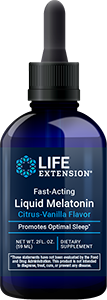
10 Best Supplements for Winter
Published: January 2025
When it comes to winter, immune health likely comes to mind as a top health goal, but there are also other important areas of health that could use some extra love in the chillier months. Whether it be the winter blues, dry skin, or trouble sleeping, there are a variety of winter vitamins and supplements that can help our bodies during this season.
Why should you take supplements in the winter?
Probably a better question to ask is: why wouldn't you take supplements during the winter? Getting a little extra support when the air is chillier, and the days are shorter can help you in a wide array of ways:
- Immune system support
- Sleep support
- Fill in gaps from diet
- Mood and mental health support
- Skin support
- Joint health
- Energy support
As temperatures dip during the winter months, people tend to spend more time together indoors. This could equate to increased exposure to unwanted airborne foes, especially if indoor air circulation is poor (which can happen when you're in smaller spaces). To make matters worse, chilly air can impact one of the body's first lines of defense against airborne insults: the nose.
That is why it is important to focus on immune health in the winter. More time spent indoors also means less sun exposure. Sun exposure is important to help maintain healthy vitamin D levels, which is important for immune health and more. Plus, sun exposure is important for the body's circadian rhythm, which in turn impacts our sleep-wake cycle, hormones and more. In addition, the shorter and darker days mean we are getting less sunlight overall, which can also affect our mental health.
The chilly, dry air also causes dry skin and joint discomfort. Also, while modern conveniences mean that many people can still access fresh fruits and vegetables year-round, people may opt for more "comfort foods" during the winter months (which tend to include ingredients that are higher in carbohydrates and added sugar, salt, saturated fats, etc.) and may exercise less, leading to us feeling less energized.
So, what should you take in the chillier months? Here are 10 dietitian-approved winter vitamins and supplements to help you stay at your best. (Pro tip: always check with your healthcare provider when adding to your routine and double-check with your pharmacist about any potential interactions with your medications.)
1. Vitamin D
Maintaining optimal blood levels of 25-hydroxy vitamin D is important year-round, and can be even more of a challenge to maintain during the winter, when your vitamin D levels likely will be affected. In the northern hemisphere, during winter, the sun is lower in the sky and doesn't stay above the horizon as long, leading to less daylight and thus less sun exposure. Plus, we are generally indoors more than usual because of the chilly weather and harsh conditions that winter brings.
Research suggests that 25-hydroxy vitamin D levels between 50-80 ng/mL is considered optimal for maintaining excellent health. While sun exposure helps us manufacture vitamin D (that's why it's called the "sunshine vitamin"), there are also a few foods that contain vitamin D to help you meet your goals. You can get this essential vitamin as a liquid, softgel, tablet or capsule, so it should be easy to find the right formula for your lifestyle.
2. Vitamin C
Vitamin C is well known for its role in the immune system. It also plays other important roles in our health: it helps support respiratory health and collagen production (important for healthy skin). If you are taking a multivitamin, you may be getting enough vitamin C to fill in gaps from your diet. If not, focus on including more fresh fruit in your diet, and add in a stand-alone vitamin C supplement if needed. The good news is that citrus fruits are in season during the winter, which can provide a good dietary source.
3. Zinc
This mineral is an immune health superstar that is also necessary for hundreds of biological activities that take place in the body, including protein synthesis. Zinc lozenges that dissolve in the mouth are a good option for this time of year for localized and systemic (whole-body) benefits.
4. B vitamins
There are 8 B vitamins, each with different roles in the body. Something that they have in common is their role in energy metabolism, including converting the foods we eat into cellular energy. You'll get a good sampling of these vitamins if you are taking a multivitamin. If not, a B-complex can help replenish your stores of these water-soluble vitamins (which require repletion daily). It also helps support a healthy nervous system. If you are not practicing "Dry January," keep in mind that alcohol affects your B vitamin levels.
Explore Our Best Immune Support Supplements
5. Multivitamin
A good foundational supplement is a must-have to fill in gaps from your diet year-round. While it is not a replacement for a varied, healthful eating pattern, a whole food multivitamin also includes phytonutrients equivalent to three servings of vegetables and two servings of fruit! It also contains important minerals, like magnesium, which are essential for your heart and bone health. (Most of us do not get enough magnesium from diet alone.)
6. Melatonin
Melatonin promotes healthy sleep while also supporting immune function. Sun exposure in the morning plays an important part in keeping our circadian rhythm in tune and contributes to melatonin production. Melatonin has been shown to promote healthy sleep/wake patterns and encourage onset, duration and quality of sleep. Melatonin is primarily synthesized by your pineal gland and released mostly at night to make falling asleep easier.
7. Fish oil
Among its many benefits, the omega-3 fatty acids found in marine sources support cognitive function and mood health. When it comes to fish oil supplementation, you'll want to get at least 1,400 mg of EPA and 1,000 mg of DHA daily. While it is difficult to obtain this amount of fatty acids from krill alone, krill oil makes a great addition to your fish oil supplement as an inclusion in the formula or as an add-on if you are looking to support your joints in the winter months. Research shows that krill oil supports joint comfort and range of motion.
8. SAMe
S-adenosyl-methionine is prevalent throughout our bodies, in both tissue and fluid, and it plays a number of roles. It's best-known for its encouragement of a healthy and stable mood and for its support of the production of vital neurotransmitters like dopamine and serotonin. SAMe also promotes joint health and comfort.
9. Ceramides
In the body, ceramides are lipids on the outermost layer of the skin's surface (or epidermis), and are responsible for creating an impermeable layer to lock in moisture, so your skin looks smooth and feels soft. Adding plant-derived ceramides (or phytoceramides) to your skin care routine can help replenish skin ceramide levels, promoting healthy, hydrated skin.
Pro tip: Don't forget about hydration! Even though you may not feel as parched compared to summertime, adequate hydration is still important. Staying hydrated also helps keep our skin moisturized.
10. Probiotics
You may be familiar with the importance of the microbiome for gut health, but did you know that the microbiome can affect everything from mood to respiratory and immune health? The microbiome is the community of all the microbes living in and on the human body. Studies indicate that gut microbes can support mood via the gut-brain axis, a complex communication network that links your gut with your brain.
The probiotic strains Lactobacillus helveticus Rosell-52 and Bifidobacterium longum Rosell-175 support a healthy mood. Lactobacillus rhamnosus CRL-1505 is a strain of bacteria that encourages a healthy immune response. Probiotics are most often found in the form of bacteria, but some of them are yeasts, such as S. cerevisiae. While you can get beneficial bacteria from foods like yogurt and kimchi, most of these foods don't provide enough to be classified as a probiotic.
How should I store my supplements in the winter?
The best way to store supplements is in a cool, dry place. So, if you have your heater on, or are using your oven more often, keep the supplements stored away from those heat sources. Most supplements can be stored at room temperature, but always read the product label for instructions. If you purchase products that are stored in a refrigerator, you likely will need to keep them refrigerated at home, too.
References
- Boo YC. "Ascorbic Acid (Vitamin C) as a Cosmeceutical to Increase Dermal Collagen for Skin Antiaging Purposes: Emerging Combination Therapies." Antioxidants (Basel). August 2022. https://pmc.ncbi.nlm.nih.gov/articles/PMC9495646/
- Brown G, et al. "Chapter One - Vitamin D and immune system." Advances in Food and Nutrition Research. 2024. https://www.sciencedirect.com/science/article/abs/pii/S1043452623000955?via%3Dihub
- Tanaka N, et al. "Relationship between Seasonal Changes in Food Intake and Energy Metabolism, Physical Activity, and Body Composition in Young Japanese Women." Nutrients. January 2022. https://pubmed.ncbi.nlm.nih.gov/35276865/
- Wessels I, et al. "Dietary and Physiological Effects of Zinc on the Immune System." Annu Rev Nutr. October 2021. https://pubmed.ncbi.nlm.nih.gov/34255547/
- "Winter comfort food: why do we crave it?" British Heart Foundation. https://www.bhf.org.uk/informationsupport/heart-matters-magazine/nutrition/ask-the-expert/winter-comfort-food
Always be in the know!
Access the latest deals, wellness news, expert health tips & more!











